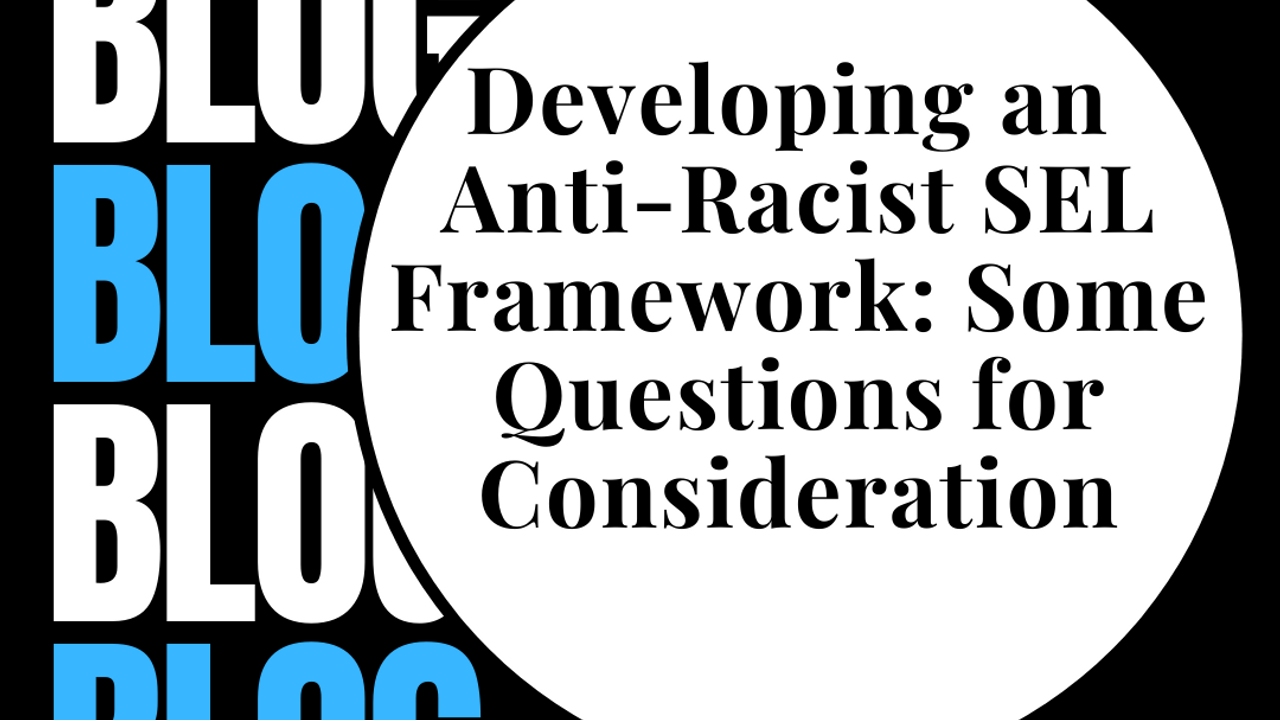Developing an Anti-Racist SEL Framework: Some Questions for Consideration

"Learning is an emotional experience, and there is no reason to avoid such emotions." -Augusto Boal, Theatre of the Oppressed
Growing interest in Social Emotional Learning (SEL) in education reflects an acknowledgment of the ways that a student’s learning is intricately tied to their social and emotional worlds. Our Anti-Racist SEL approach honors the ways that student’s learning is also impacted by positionality, power, and history.
While some SEL programs aims to separate or “sanitize” SEL from the work of anti-racist liberation (and therefore risks becoming, in the words of Dr. Dena Simmons, “white supremacy with a hug”), we believe that SEL must be not aligned with anti-racist goals, but imbued with an anti-racist practice.
We offer some questions below for reflecting on your educational community’s current cultural approach to social emotional learning and how you might move it towards anti-racism.
Do our students feel safe to learn in the comfort of their own skin? Safety can have various interpretations, and we ask: Are students about to take risks without activating a fight/flight/freeze response? Can all students, especially our students of color, poor and working class students, LGBTQ+ students, students with marginalized gender, students whose first language is not English, those students currently furthest from educational justice, participate in all aspects of learning and school life?
How is SEL incorporated in all content lessons, not just the co-curriculum? Does SEL live “on the side” in one-off lessons or advisories? How can SEL also be a part of all subjects with intention, alignment, and clarity?
What SEL skills and competencies are valued and upheld in my school? Why is that? Does self-confidence come at the expense of community care? Are our prosocial skills rooted in a dominant cultural norm for which social interactions are “acceptable”?
Is intention being made explicit to students? Are we simply telling students to be ready for the “real world,” and how are we acknowledging the ways our student’s current needs are very real? Do students know what SEL skills and competencies are valued and upheld?
What SEL skills am I assessing in my classes? (eg: teamwork, leadership, metacognition, emotional self-perception) Do I actively teach those skills, or do I assume students know them? How might I more intentionally teach and practice those skills before assessing them?
Our Anti-Racist SEL Guide offers a framework as well as adaptable lessons for Grades 6-12.
Emily Schorr Lesnick(she/her/hers) is the creator of our White Anti-Racist Accountability mini-course in addition to being a facilitator and educator here at The Institute for Anti-Racist Education. Along with Jill Leahy, she curated our Anti-Racist SEL Guide which is now available for purchase on a sliding scale.

